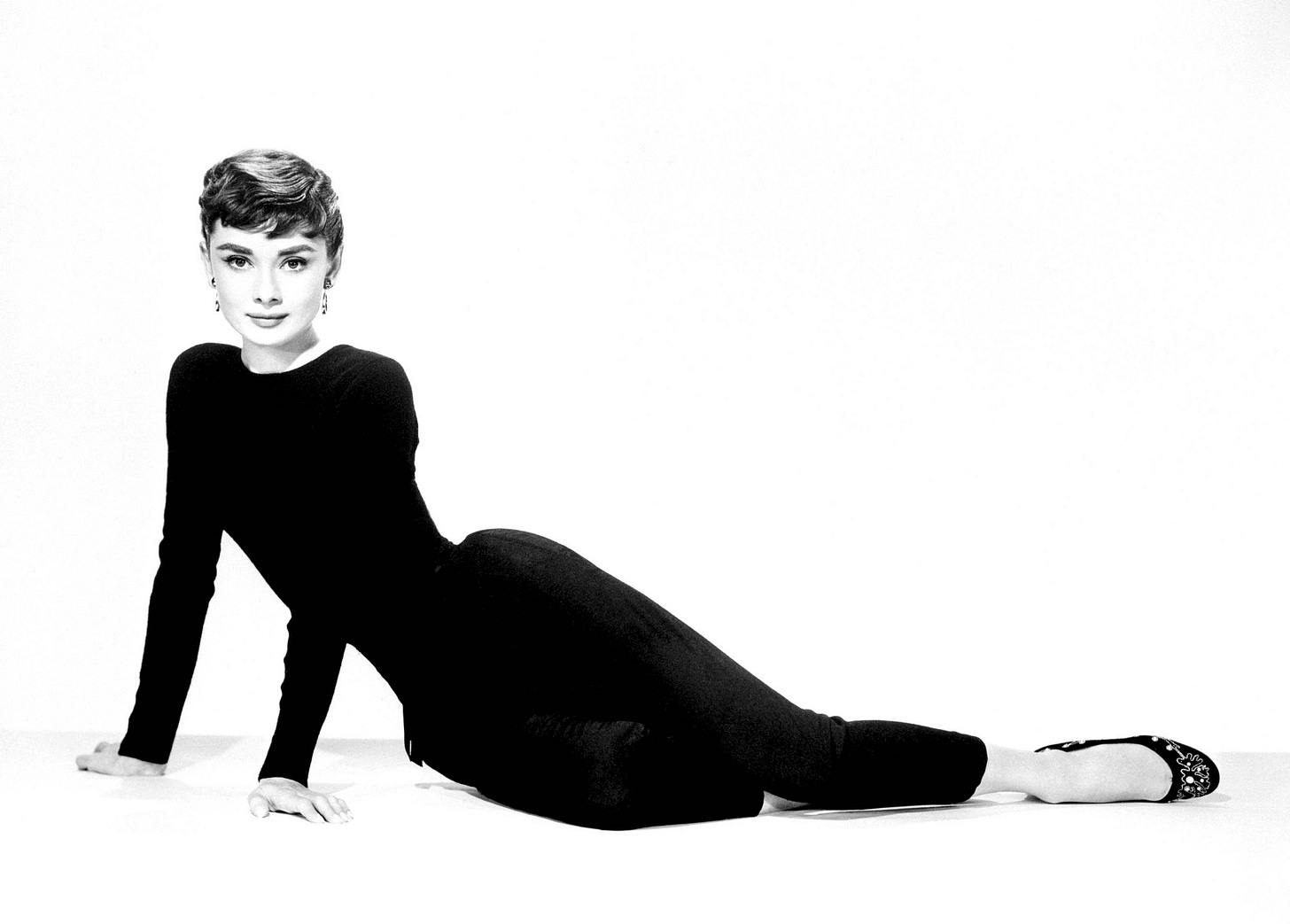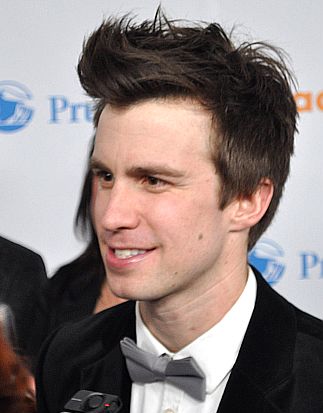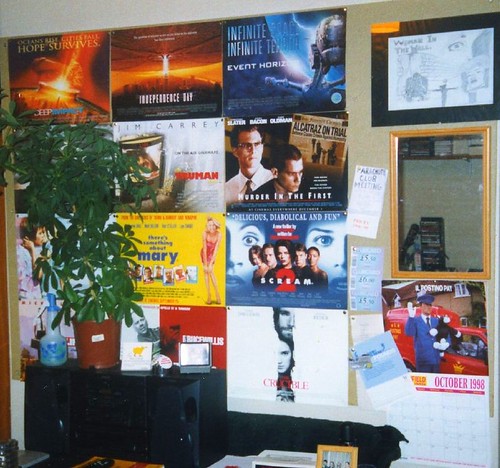
Have you ever been scrolling through your favorite streaming service, stumbled upon a classic movie, and then thought, “Wait, what if someone else played that iconic role?” It’s a fun mental exercise, right? Especially when we’re talking about characters that have become etched into our pop culture consciousness forever. But here’s a mind-bending thought for you: many of those legendary roles almost went to completely different actors!
And get this, we’re not just talking about any actors. We’re diving deep into the fascinating world of Oscar winners – those who have reached the pinnacle of cinematic achievement – who looked at a script for what would become an unforgettable film, and just… passed. Sometimes it was a scheduling conflict, other times it was a gut feeling, or even a strong personal conviction. The reasons are as varied as the films themselves.
Prepare to have your mind blown as we explore ten incredible instances where Academy Award winners, both current and future, decided to take a different path. These choices not only reshaped their own careers but also fundamentally altered the course of movie history. Who knows, maybe your favorite movie character wouldn’t be the same if these stars had said “yes”! Let’s jump in.

1. **Will Smith (Neo In The Matrix)**:It’s almost impossible to imagine anyone but Keanu Reeves as the trench-coat-wearing, bullet-dodging hero Neo in “The Matrix.” That mind-bending, dystopian sci-fi classic redefined action movies and philosophical storytelling for a generation, and Reeves’ quiet intensity became synonymous with the character of the “chosen one.” But believe it or not, the role of Thomas Anderson, soon to become the iconic Neo, was first offered to none other than Academy Award winner Will Smith.
Smith, a bona fide box office king, was at the height of his career when “The Matrix” came knocking. He had already proven his mettle in blockbuster sci-fi hits like “Independence Day” and “Men in Black.” The prospect of a global superstar like Smith in such a groundbreaking role must have been tantalizing for the studio, promising a potentially even bigger opening weekend for the Wachowskis’ visionary film.
However, Smith had other ideas. The Academy Award winner has since openly shared his thoughts on why he ultimately passed on the part, offering a perspective that might surprise many fans. He believed that Keanu Reeves was, in fact, the superior choice for the role, even going so far as to claim in a video on his YouTube channel that he would have “ruined it.” That’s some serious humility, especially coming from an actor of his caliber!
This decision by Smith wasn’t just a minor career blip; it was a pivotal moment for “The Matrix” franchise and for Keanu Reeves himself. While we might never truly know what a Will Smith-led Matrix would have looked like, his choice cemented Reeves as an action icon and allowed Smith to pursue other projects, carving out his own unique path in Hollywood history. It’s a testament to how one decision can alter the entire cinematic landscape.
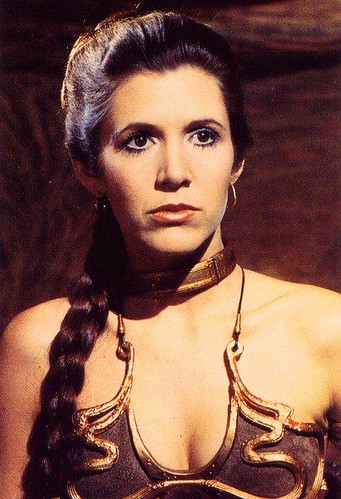
2. **Jodie Foster (Princess Leia in Star Wars)**:When you think of “Star Wars,” images of lightsabers, Darth Vader, and, of course, the indomitable Princess Leia Organa instantly spring to mind. Carrie Fisher’s portrayal of the fierce, quick-witted leader of the Rebel Alliance is legendary, making her one of cinema’s most beloved heroines. But imagine a universe where Leia was played by a different future icon – a universe where a young Jodie Foster might have wielded the blaster.
Back in the mid-1970s, a teenage Jodie Foster was already a rising star, fresh off her Academy Award-nominated, breakthrough performance in Martin Scorsese’s gritty 1976 masterpiece, “Taxi Driver.” With such critical acclaim under her belt at such a young age, it’s no wonder that casting directors for George Lucas’s ambitious space opera had her on their radar for the pivotal role of Princess Leia.
The opportunity to join the “Star Wars” saga must have been immense, even if the film’s eventual cultural impact couldn’t have been fully predicted at the time. However, as the two-time Oscar winner herself revealed years later on “The Tonight Show” with Jimmy Fallon, fate had other plans. Foster had a pre-existing contractual obligation to an “unnamed Disney movie,” which regrettably prevented her from taking on the role of Alderaan’s princess.
This unavoidable conflict opened the door for Carrie Fisher, who famously stepped into Leia’s iconic white robes and braided buns. While Foster went on to achieve immense success and two Academy Awards for her dramatic work, her contractual commitment inadvertently paved the way for Fisher to become a global phenomenon, forever known as our rebel princess. It just goes to show how seemingly small industry commitments can lead to truly grand cinematic destinies!
Read more about: Mind-Blown! 13 Times A-Listers Passed On Iconic Movie Roles And Changed Cinema Forever
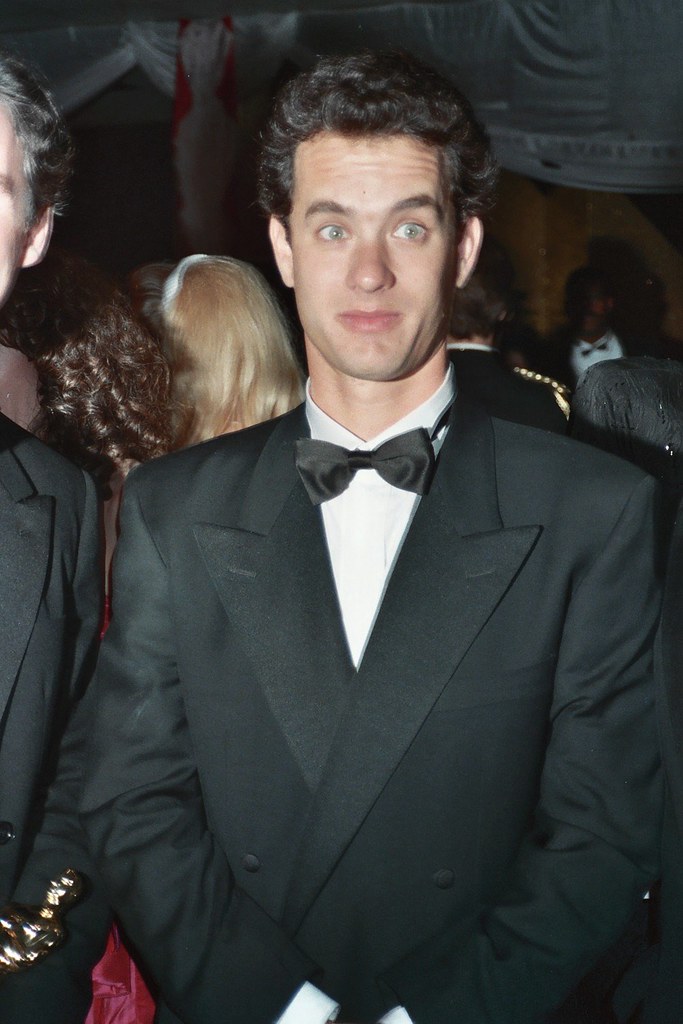
3. **Tom Hanks (Jerry Maguire In Jerry Maguire)**:”Show me the money!” That line, delivered with impassioned intensity by Tom Cruise, is etched into the collective memory of anyone who’s seen Cameron Crowe’s beloved 1996 dramedy, “Jerry Maguire.” Cruise’s portrayal of the high-flying sports agent who loses everything and embarks on a journey of self-discovery, complete with a memorable “you complete me” speech, earned him an Academy Award nomination and solidified the film’s place in the romantic comedy-drama pantheon.
However, before Cruise ever uttered those unforgettable words, another Hollywood titan, none other than Tom Hanks, was initially approached for the eponymous role. At this point in his career, Hanks was truly “on top of the world,” having already cemented his status as a two-time Oscar winner with consecutive victories for “Philadelphia” and “Forrest Gump.” He was America’s sweetheart, known for his relatable, everyman charm and incredible dramatic range.
The idea of Hanks, with his inherent warmth and sincerity, navigating Jerry Maguire’s journey from corporate hotshot to principled underdog is certainly intriguing. It would have undoubtedly been a different film, perhaps leaning more into the character’s vulnerability from the outset. Yet, Hanks ultimately decided to pass on the part, a decision that allowed the film to find its eventual star in Cruise.
Reflecting on his choice later, Hanks expressed a sentiment many fans now share, telling Access Hollywood (via FandomWire), “I think you look at it now and it couldn’t have been anybody other than Tom Cruise.” It’s rare to hear an actor so readily acknowledge that another performer was the perfect fit for a role they declined. This mutual admiration highlights how some characters are just destined for a particular actor, and in this case, Cruise’s electrifying performance as Jerry Maguire truly spoke for itself.
Read more about: Mind-Blown! 13 Times A-Listers Passed On Iconic Movie Roles And Changed Cinema Forever
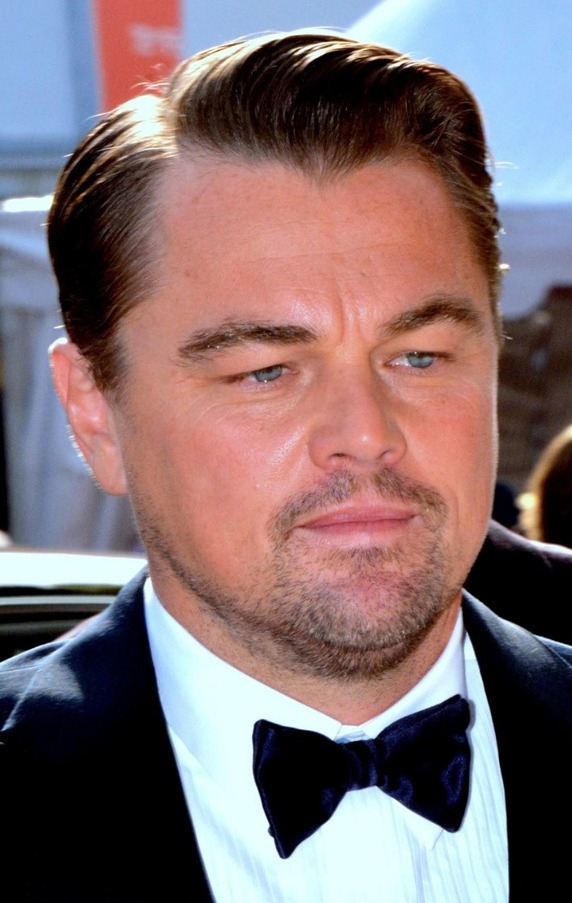
4. **Leonardo DiCaprio (Patrick Bateman In American Psycho)**:Christian Bale’s chilling, utterly captivating performance as Patrick Bateman in 2000’s “American Psycho” is a masterclass in psychological horror and dark satire. His portrayal of the materialistic, homicidal investment banker has become iconic, a disturbing yet strangely compelling figure in cinema. It’s hard to imagine anyone else bringing Bateman’s unique brand of narcissistic depravity to life with such precision and intensity.
However, in a move that seems almost unbelievable now, this intensely dark and controversial role was initially on the radar of a very different kind of star: Leonardo DiCaprio. Bale himself once humorously noted to GQ that it felt like “every one of his roles was first offered to Leonardo DiCaprio,” and the role of Patrick Bateman stands as a confirmed example of this peculiar Hollywood phenomenon.
At the time, DiCaprio was fresh off the global phenomenon of “Titanic,” basking in the glow of his newfound status as the world’s ultimate romantic heartthrob. Taking on a character as morally reprehensible and graphically violent as Patrick Bateman would have been a drastic shift in his public image, to say the least. The future Oscar winner offered his own reasoning for declining the role, telling The Morning Call that he felt the script “didn’t mean anything in the end,” suggesting a desire for more profound thematic depth in his projects.
Interestingly, the rumor mill provided another compelling, and rather famous, reason for DiCaprio’s decision. It’s widely reported that Christian Bale’s stepmom, the legendary feminist icon Gloria Steinem, played a role in convincing DiCaprio that accepting the part would be detrimental to his meticulously crafted “post-Titanic” reputation. Whether driven by artistic concern or strategic career advice, DiCaprio’s choice led to Bale’s unforgettable turn, solidifying Bateman as a character who continues to provoke and disturb audiences to this day.
Read more about: Mind-Blown! 13 Times A-Listers Passed On Iconic Movie Roles And Changed Cinema Forever
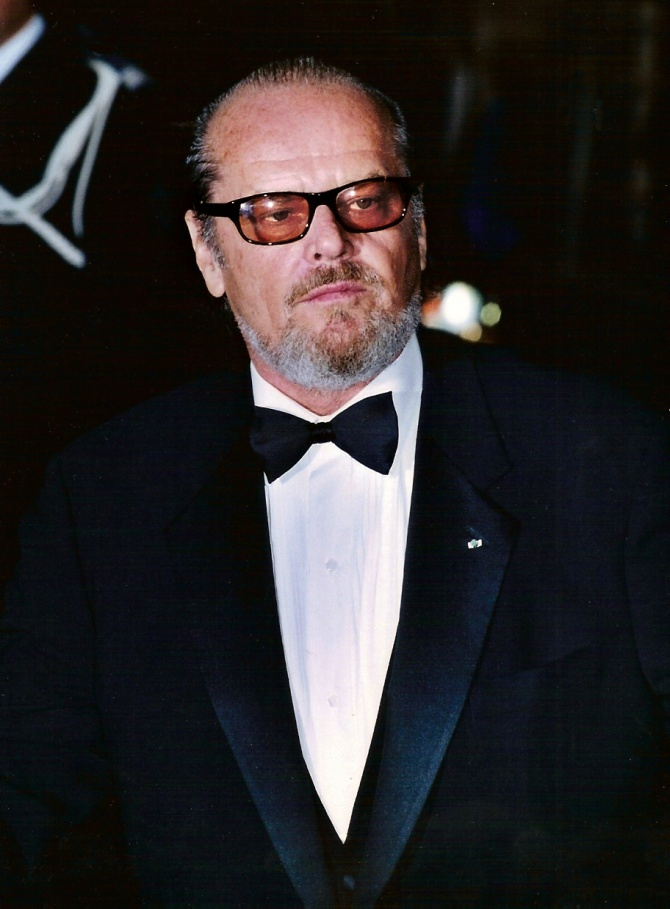
5. **Jack Nicholson (Michael Corleone In The Godfather)**:”The Godfather” stands as a monumental achievement in cinematic history, a sprawling crime epic that continues to captivate audiences decades after its release. Central to its enduring power is Al Pacino’s transformative performance as Michael Corleone, the reluctant heir who slowly descends into the ruthless world of his family’s criminal enterprise. Pacino’s intense gaze and controlled ferocity made Michael an unforgettable, complex antagonist, defining the character for all time.
Yet, just as we can’t imagine anyone else as Michael, it’s also true that many other prominent actors were considered for the role. Among them was the legendary Jack Nicholson, an actor renowned for his magnetic charisma, intense portrayals, and ability to perfectly blend menace with charm. It’s fun to ponder what the three-time Oscar winner might have brought to the part; his unique energy would undoubtedly have created a very different, yet potentially equally compelling, iteration of the character.
However, Nicholson ultimately refused the offer to join Francis Ford Coppola’s masterpiece. His decision was rooted in a very specific, principle-driven belief, as he explained in a 2004 interview with Movieline (via ScreenRant). Nicholson stated that he strongly believed “Italians should play Italians,” indicating a commitment to authentic representation within film casting.
This stance, coming from an actor of Nicholson’s stature, speaks volumes about the evolving conversations surrounding identity and casting in Hollywood. While his absence from “The Godfather” might seem like a missed opportunity on the surface, his refusal on these grounds opened the door for Al Pacino to deliver one of the most iconic performances in film history, proving that sometimes, an actor’s principles can reshape cinema just as much as their performances.
Now that we’ve glimpsed some of the incredible ‘what-ifs’ from the first half of our cinematic journey, prepare yourselves for five more jaw-dropping revelations! It’s truly wild to think about the alternate universes where these Academy Award-winning stars decided to dance to a different beat, turning down roles that became legendary for others. Their motivations are as varied as their talents, ranging from artistic differences to scheduling nightmares, and sometimes, just a gut feeling that a role wasn’t for them. These stories are a testament to the complex tapestry of Hollywood, where a single decision can echo through cinematic history.
These choices, often made years before the films cemented their place in history, underscore the unpredictable nature of Hollywood. They remind us that behind every iconic performance lies a path of decisions, near misses, and sometimes, a deliberate step away. So, grab your popcorn and get ready for a deep dive into the amazing stories of more Oscar winners who, despite their undeniable talent, chose to give some of the biggest roles to other stars, forever altering film legacy in the process!
Read more about: Mind-Blown! 13 Times A-Listers Passed On Iconic Movie Roles And Changed Cinema Forever
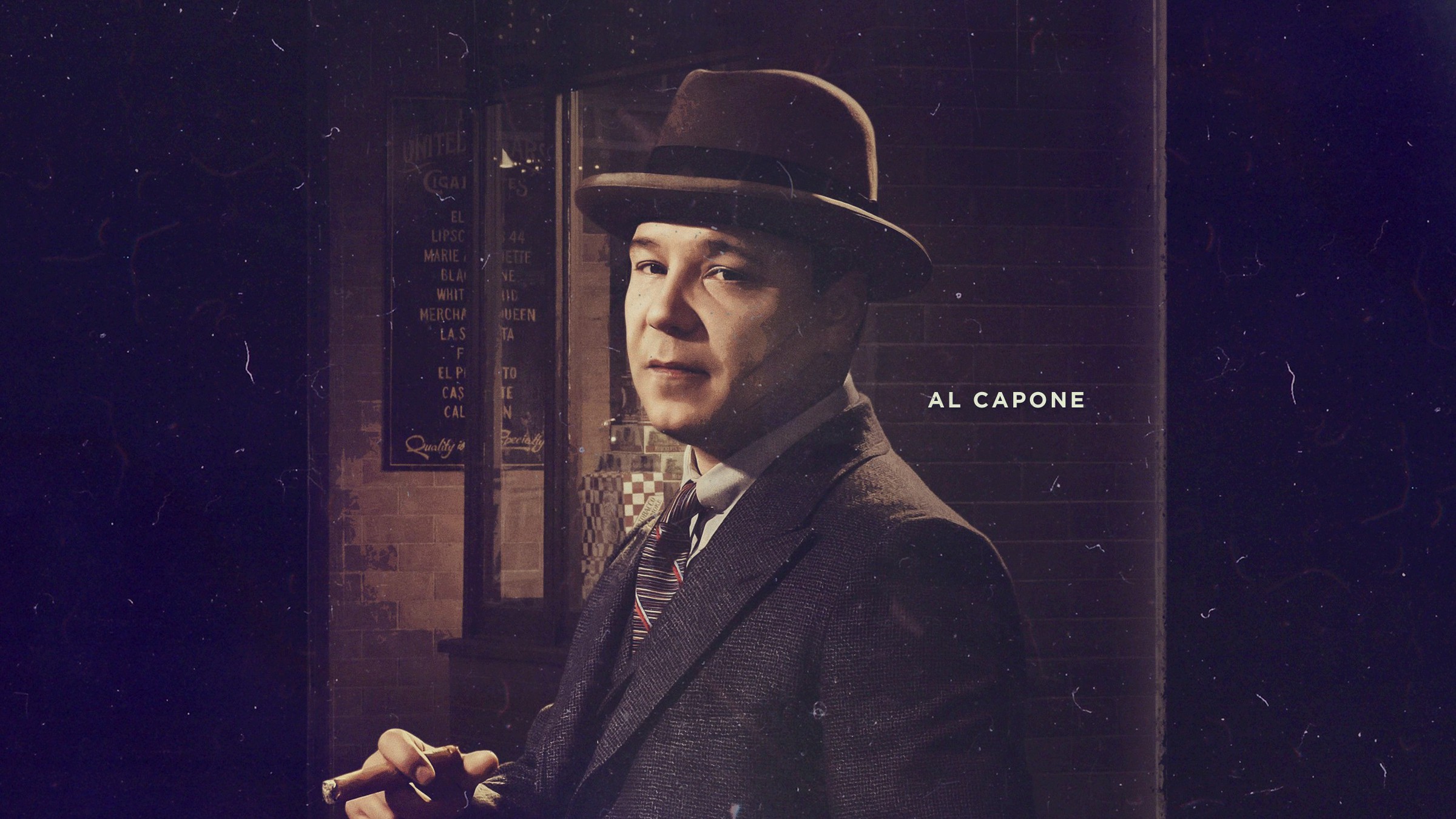
6. **Al Pacino (Han Solo In Star Wars)**:Imagine a world where the galaxy’s most charming scoundrel, Han Solo, was brought to life by the intense, unmistakable presence of Al Pacino. It sounds like something straight out of a fan-fiction fever dream, doesn’t it? But believe it or not, the role that cemented Harrison Ford as a global superstar in George Lucas’s groundbreaking “Star Wars” was initially offered to none other than the “Oscar winner” Al Pacino. This truly mind-bending possibility makes you wonder about the ripple effects on one of cinema’s most beloved franchises.
Pacino, a master of dramatic intensity and commanding screen presence, was already a rising force in Hollywood by the mid-1970s, fresh off his iconic turns in “The Godfather” and “Serpico.” The idea of him stepping into the cockpit of the Millennium Falcon is certainly intriguing; his unique gravitas would have undoubtedly given Han Solo a very different edge, perhaps a more brooding or morally conflicted demeanor from the outset, contrasting sharply with Ford’s roguish charm.
However, as Pacino candidly revealed in his memoir, “Sonny Boy,” the script for “Star Wars” simply didn’t click with him at the time. He explained that he “could not make anything out of” George Lucas’s vision, suggesting that the fantastical elements of the space opera might not have resonated with his more grounded, character-driven acting style of that era. His decision, while perhaps baffling to modern fans, was a huge moment for Harrison Ford, who famously seized the opportunity and, well, the rest is history! Ford’s sardonic wit and rugged charm made Han Solo an enduring pop culture icon for generations.

7. **Gwyneth Paltrow (Rollergirl In Boogie Nights)**:When “Boogie Nights” exploded onto the scene in 1997, it was a tour de force that launched careers and redefined ensemble dramas. Heather Graham’s portrayal of “Rollergirl,” the innocent yet fiercely independent roller-skating porn star, became an instantly recognizable and surprisingly poignant character within this vibrant ensemble. It’s genuinely hard to picture anyone else bringing that specific blend of vulnerability, nascent confidence, and youthful naivety to the role.
Graham perfectly captured the character’s journey from a shy newcomer to someone finding her voice and agency within a chaotic world. Her performance was a standout in a film filled with memorable turns, truly embodying the spirit of the character and making her a beloved figure among the film’s dedicated fanbase. Her commitment to the role allowed audiences to see past the controversial setting and connect with the human story at its core.
However, the director, Paul Thomas Anderson, initially had another actress in mind for this pivotal part: Gwyneth Paltrow. At the time, Paltrow was a burgeoning star, already making waves with her sophisticated, charming roles. Her image was one of elegance, poise, and mainstream appeal, a stark contrast to the gritty, unglamorous, and often explicit world of “Boogie Nights.” As the “future Oscar winner” later confessed, she passed on the part fearing it would “kill” her conservative grandfather, and understandably so, given the film’s challenging content. Her decision, driven by strong personal conviction, opened the door for Heather Graham, who delivered a breakout performance.
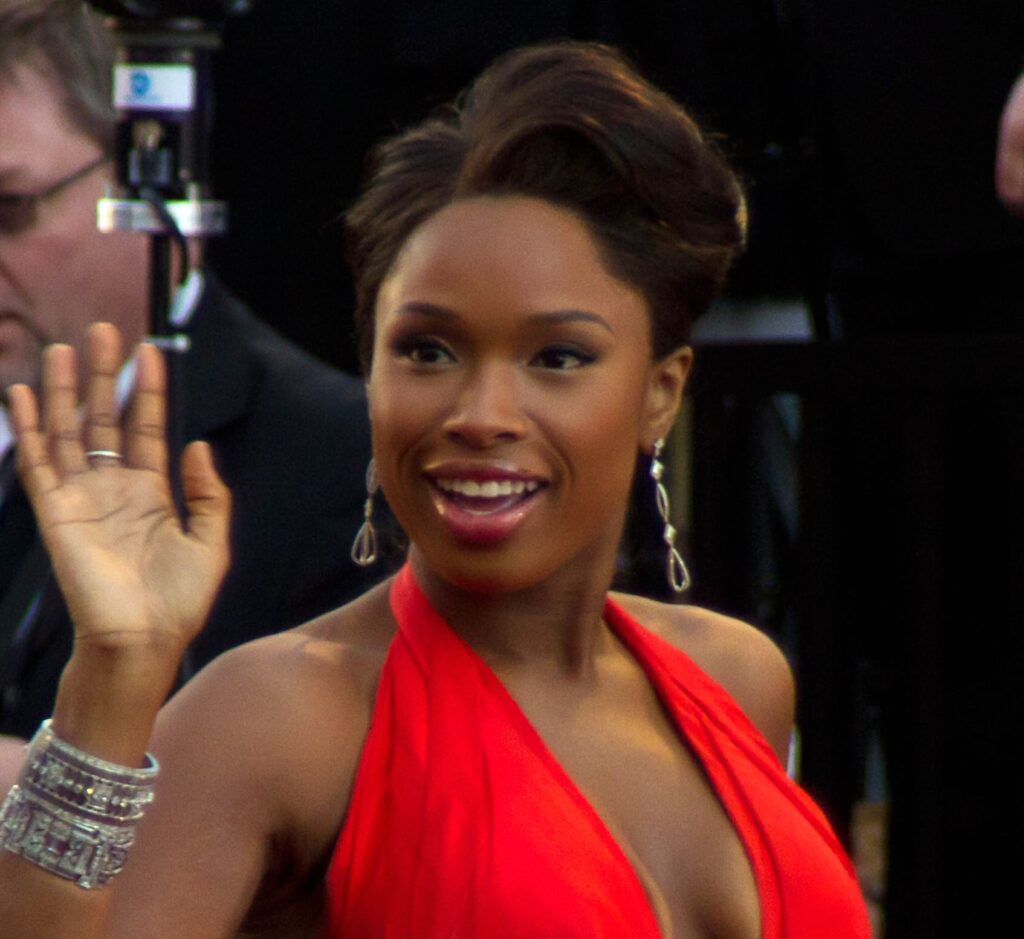
8. **Jennifer Hudson (Precious In Precious)**:”Precious” is a film that demands everything from its audience and its actors, offering a powerful, yet harrowing, narrative of resilience that captivated critics and viewers alike. Gabourey Sidibe’s raw, unflinching portrayal of the titular character earned her an Academy Award nomination and immense critical praise, making her an overnight sensation. Her performance as the resilient, abused teenager navigating unimaginable hardships was nothing short of transformative, leaving an indelible mark on cinematic history and the hearts of viewers.
Sidibe brought an authentic vulnerability and an incredible inner strength to the role, making Precious a character that audiences deeply connected with on an emotional level. Her ability to convey such profound pain and budding hope, often without dialogue, was truly remarkable, and it’s difficult to envision another actress capturing that essence quite so perfectly. The film’s success hinged on this central, powerful performance, which felt deeply personal and genuine, earning its place among modern cinematic classics.
But before Sidibe embodied Precious, another “Oscar winner” was offered the challenging role: Jennifer Hudson. Hudson, who had already won an Academy Award for Best Supporting Actress for her powerhouse performance as Effie White in “Dreamgirls,” was at a pivotal point in her career, meticulously choosing projects. The role of Precious required a profound emotional commitment and a physical transformation, including a significant weight gain, which was a notable public discussion point at the time. She ultimately explained she was not interested in “what the role… would have required her to do at that point in her career.”
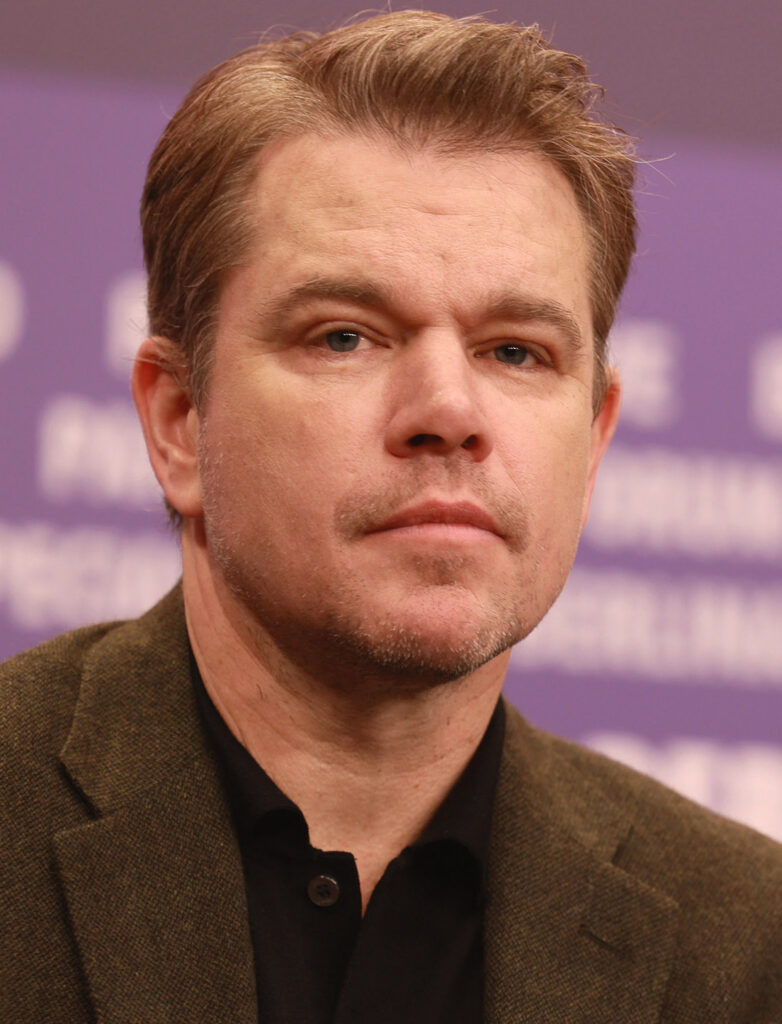
9. **Matt Damon (Jake Sully In Avatar)**:When James Cameron’s “Avatar” soared into theaters, it wasn’t just a movie; it was a global phenomenon that redefined visual effects and shattered box office records worldwide. Central to its emotional core was Sam Worthington’s performance as Jake Sully, the paraplegic Marine who finds himself caught between two worlds on the lush moon of Pandora. Worthington, a relatively unknown actor at the time, became a household name overnight, bravely navigating a performance that was largely motion-capture based and requiring immense physical and imaginative effort.
Worthington’s raw physicality and grounded delivery helped anchor the fantastical world of Pandora, allowing audiences to connect with his character’s internal struggle and ultimate transformation. His portrayal brought a sense of relatability to an otherwise alien landscape, a crucial element for the film’s massive success. He truly made Jake Sully his own, a hero both flawed and inspiring against the backdrop of an alien civilization, proving that sometimes an unknown face can perfectly embody a universal story.
Yet, this career-defining role for Worthington very nearly went to another Hollywood heavy-hitter, the “Oscar winner” Matt Damon. Damon, known for his incredibly versatile performances in everything from action thrillers like “The Bourne Identity” to acclaimed dramas like “Good Will Hunting” (for which he won his Oscar for screenwriting), was at the undeniable peak of his leading-man status. The idea of him as the reluctant hero Jake Sully is definitely a compelling thought experiment, imagining how his unique blend of intelligence and everyman charm would have shaped the character.
Read more about: Mind-Blown! 13 Times A-Listers Passed On Iconic Movie Roles And Changed Cinema Forever
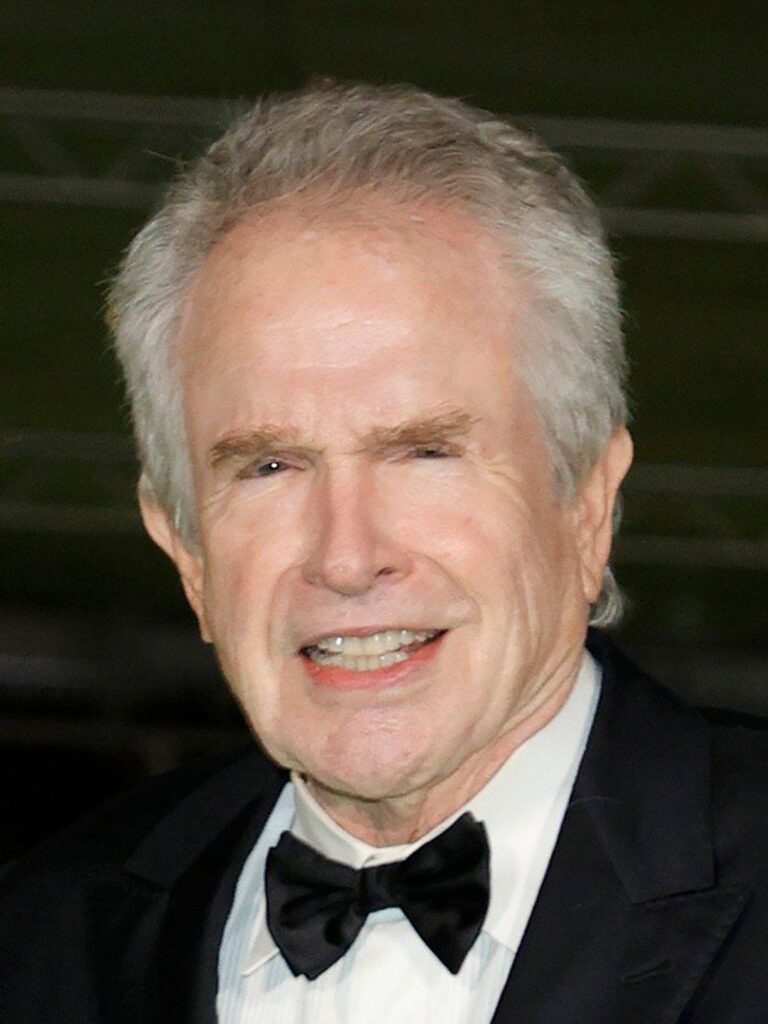
10. **Warren Beatty (Bill In Kill Bill)**:Quentin Tarantino’s “Kill Bill” saga is a stylistic masterpiece, a hyper-violent, emotionally charged ode to martial arts films and spaghetti westerns, split into two volumes that became instant cult classics. The enigmatic, titular “Bill,” played with a compelling blend of charm, cunning, and underlying menace by David Carradine, serves as the ultimate antagonist and the driving force behind Uma Thurman’s vengeful Bride. Carradine’s performance resurrected his career and solidified Bill as one of cinema’s most complex and memorable villains, leaving an unforgettable impression on audiences.
Carradine brought a unique, world-weary gravitas to Bill, a character who is both philosophical and utterly ruthless. His quiet intensity and distinct voice made him an unforgettable presence, proving to be the perfect foil for the Bride’s furious quest for vengeance. It’s difficult to imagine anyone else inhabiting that role with such a nuanced balance of intellect and inherent danger, a true master of subtle menace and a compelling screen presence that resonated deeply with Tarantino’s vision.
However, when Quentin Tarantino first started crafting the character of Bill, he had a very different actor in mind: the legendary “Oscar winner” Warren Beatty. Tarantino himself revealed to BBC in 2003 that he originally began writing the role specifically with Beatty in mind, driven by a strong desire to collaborate with the esteemed actor and filmmaker. Beatty, a cinematic polymath known for his work in front of and behind the camera in classics like “Bonnie and Clyde” and “Reds” (for which he won his Oscar for Best Director), would have brought an entirely different, perhaps more suave and sophisticated, gravitas to the role, adding another layer of intrigue to the character.
And there you have it, folks! Ten incredible stories of Oscar-winning actors who, for a myriad of reasons, decided to let iconic roles pass them by. It’s a testament to the unpredictable nature of the film industry, where a simple “no” can ripple through history, launching new stars and shaping cinematic landscapes. These fascinating ‘what if’ scenarios don’t just entertain us; they offer a unique glimpse into the choices, principles, and sometimes, the sheer happenstance that defines a career in Hollywood. It truly makes you wonder which other roles almost went to someone else, and how many other iconic performances were born from these unexpected turns, doesn’t it? Keep those eyes peeled for the next unexpected casting tale!

